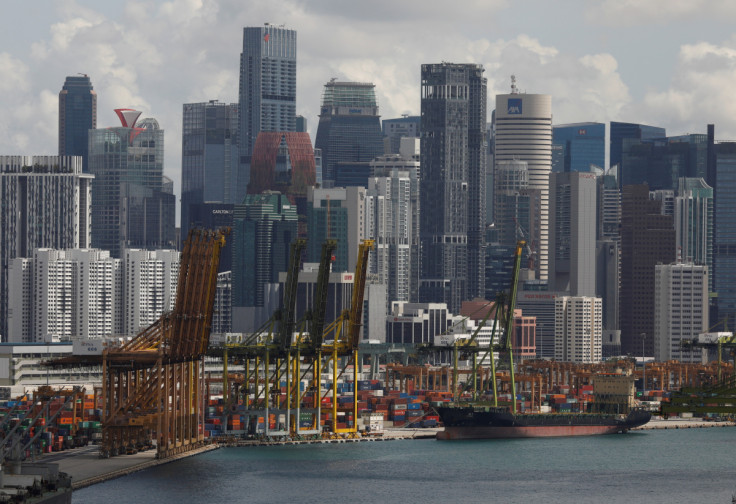Singapore GDP Growth To Ease In Q3, Keeps MAS In Delicate Balancing Act: Reuters Poll

Singapore's economy is expected to have expanded at a slower pace in the third quarter, underlining the central bank's challenge as it balances the urgency of tackling inflation without triggering a steep recession by over-tightening policy.
Advance data on Friday is expected to show gross domestic product (GDP) expanded 3.4% in July-September from a year ago, according to the median forecast of 19 economists in a Reuters poll.
The manufacturing industry, the Asian financial hub's main growth engine, has underperformed due to slowing global economic activity, though the services sector outlook has improved after the removal of most COVID-19 curbs and the return of international conferences and events in the past month.
The city-state's economy expanded 4.4% year-on-year in the second quarter this year, though it had contracted 0.2% on a quarter-on-quarter seasonally adjusted basis.
That raises the risk of a technical recession, broadly defined as two consecutive quarters of quarter-on-quarter contractions.
Maybank economist Chua Hak Bin said there is a "rising risk of a technical recession", and added that he isn't expecting the central bank to tighten monetary policy aggressively given the growth concerns.
The Singapore government had downgrade its 2022 GDP growth forecast range to 3% to 4% from 3% to 5% in August, citing the weakening external demand outlook.
As with many other countries, stubbornly high inflation remains the key risk this year. The International Monetary Fund on Tuesday warned of recession risks for a third of the global economy.
Economists are watching to see whether Singapore's official inflation forecast would be revised when the central bank releases its monetary policy statement, which is also due on Friday.
Analysts are expecting the Singapore labour market to remain tight, and prices to continue climbing.
Sixteen economists forecast the Monetary Authority of Singapore (MAS) to tighten its policy, but are divided on how aggressive it will be and which of its settings will change.
Instead of interest rates, the MAS manages policy by letting the local dollar rise or fall against currencies of its main trading partners within an undisclosed band, known as the Singapore dollar Nominal Effective Exchange Rate, or S$NEER.
It adjusts its policy via three levers: the slope, mid-point and width of the policy band.
Economists, including Maybank's Chua, who expect MAS to tighten only via one lever largely cited the weak growth outlook.
The MAS has tightened monetary policy four times in a row, with the latest in July in an out-of-cycle move.
© Copyright Thomson Reuters {{Year}}. All rights reserved.





















